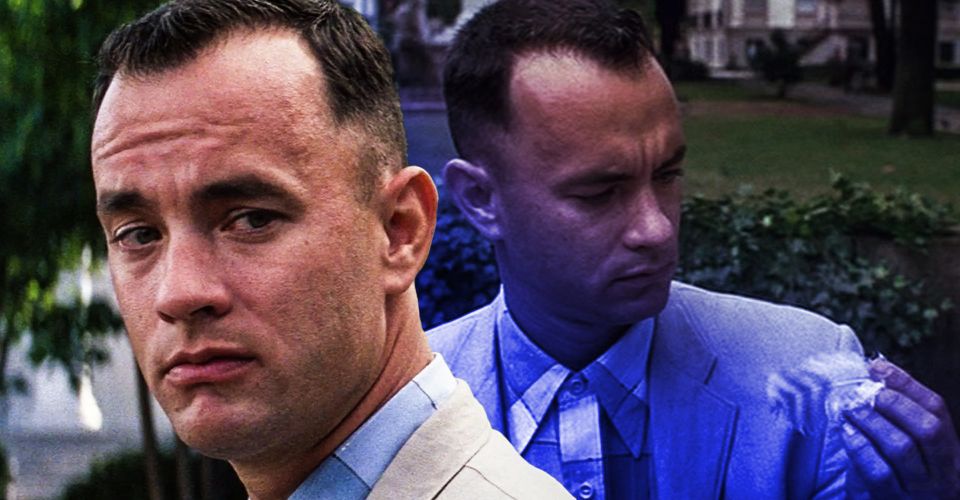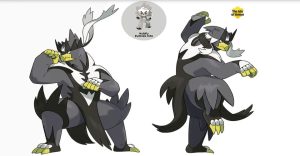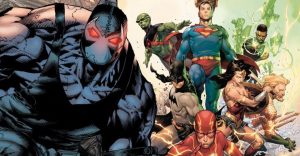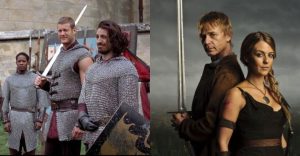Forrest Gump: What The Feather At The Beginning & End Means

1994’s Forrest Gump has become iconic in many ways, and one of its many memorable components is the symbolic feather that shows up during the film’s beginning and end. The historical comedy-drama follows the titular character (Tom Hanks) — a good-hearted, Alabama-hailing man born with a physical and mental disability — from childhood into adulthood. And, along the way, by chance, his life intertwines with a slew of major US historical events and notable people. As a kid, he meets Elvis Presley. Later, he’s present for the desegregation of his college, fights in the Vietnam War, meets John Lennon and Richard Nixon, is a witness to the Watergate scandal, and more.
Forrest’s character is doctored into all sorts of historical footage, suggesting he played a part of major historical events throughout his life — completely by chance. His character is also successful at everything he sets out to accomplish. Tom Hanks’ portrayal of Forrest Gump shines thanks to the other incredible performances from his co-stars (e.g. Robin Wright’s Jenny, Sally Field’s portrayal of his mother, and Gary Sinise’s Lieutenant Dan). They all compliment each other by accurately capturing the messiness of life — one that’s often painful and arduous, but, depending on the circumstances, can ultimately be hopeful and rife with opportunity.
Ultimately, the feather in Forrest Gump touches on these themes symbolically. The feather first shows up during the film’s opening, floating wistfully until it falls at Forrest’s feet. He puts it into his suitcase, before beginning to tell the story of his life. The symbol doesn’t come back into play until the film’s very end, after he’s sent his son on the bus for his first day of school. The feather represents Forrest’s approach to life — it just floats through the world in whichever direction the wind takes it. A lot of what happens is up to chance — for good and for bad.

Forrest has a dramatic life: after the tragedies of his childhood and the traumatic experience of the Vietnam War, he becomes a ping pong champion for the US Army, a millionaire thanks to the Bubba Gump Shrimp Company and investing money in Apple computers, a cross-country running celebrity, saves a slew of lives overseas, and more. Despite floating through life and winging it without a set plan, he builds an impressive life for himself, selflessly helping countless others along the way. Forrest Gump hints that its titular character’s willingness to accept life as it happens — as well as his good-natured attitude toward others — is why he is ultimately successful.
Forrest Gump also shows life’s unfairness, indicating that the way the wind blows isn’t easily predicted (or favorable). Jenny, despite her innate goodness, lives a troubled life from the very beginning, and, once she dies a shockingly young death after a tragic life, it feels as though she never truly had a chance in the first place. Similarly, Lieutenant Dan loses his legs in Vietnam instead of dying on the battlefield like his other family members before him, leading him to struggle with depression. Unlike Forrest — who continually accepted what happened to him in life, adjusting along the way — both Jenny and Dan struggle to find peace, leading to their suffering. Forrest Gump isn’t only funny, touching, and historical — it’s also a deeply philosophical work about what it’s like to be human, searching for peace and acceptance in the face of pain, and, as Forrest’s mom instills in him, figuring out your own destiny is for yourself.
About The Author


















